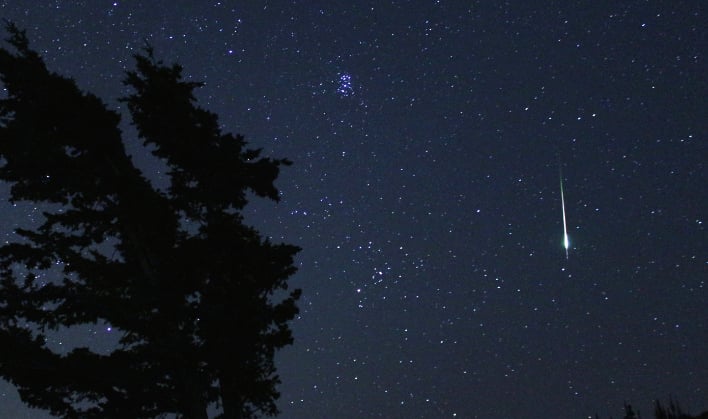NASA Confirms Sonic Boom Heard Over Pittsburgh Was A Half-Ton Meteor That Exploded

As many were still fighting off the grogginess from New Years Eve in Pittsburgh, Pennsylvania, they were awakened by a thunderous roar that shook windows and the ground beneath them. The National Weather Service believed that the noise originated from an exploding meteor after the agency's GOES-16 Geostationary Lightning Mapper (GLM), an optical instrument, did not detect any lightning in the area, but was not 100 percent sure.
About five hours after the boom was heard, the National Weather Service in Pittsburgh tweeted out that the it believed the loud explosion heard just before 11:30 a.m. may have been a meteor explosion.
The loud explosion heard over SW PA earlier may have been a meteor explosion. This GOES-16 GLM Total Optical Energy product shows a flash that was not associated with lightning. No confirmation, but this is the most likely explanation at this time. pic.twitter.com/ArtHCEA1RT
— NWS Pittsburgh (@NWSPittsburgh) January 1, 2022
NASA reported on its Meteor Watch Facebook page the next day that it was aware of the incident and confirmed that it was indeed a large meteor that caused the disturbance. In NASA's first post it indicated that the bright cloud background prevented it from being able to obtain an energy estimate at that time.
About four hours later, NASA added a second post stating the blast wave from the meteor was registered by a nearby infrasound station and that the data enabled an estimate of the energy at 30 tons of TNT. Factoring in the believed speed of the meteor (45,000 miles per hour), NASA estimated the size of the meteor to have been about half a ton, with a crude estimate of having about 100 times the brightness of the Full Moon.
The fact it was cloudy on the day the meteor is said to have exploded in the sky above, made it near impossible for anyone to see the bright explosion it created. There were people posting on NASA's Facebook post that they heard the explosion in places like Central North Carolina and Ohio. One person even stated they believe they saw the meteor from Florida. None of these have been confirmed to have originated from the meteor reported in Pennsylvania.
There is no doubt that those who were in the general area of where the meteor exploded were left wondering what in the world caused it. Whether or not they were relieved to find out it was a half a ton meteor exploding in the sky above them with the force of 30 tons of TNT is debatable.

